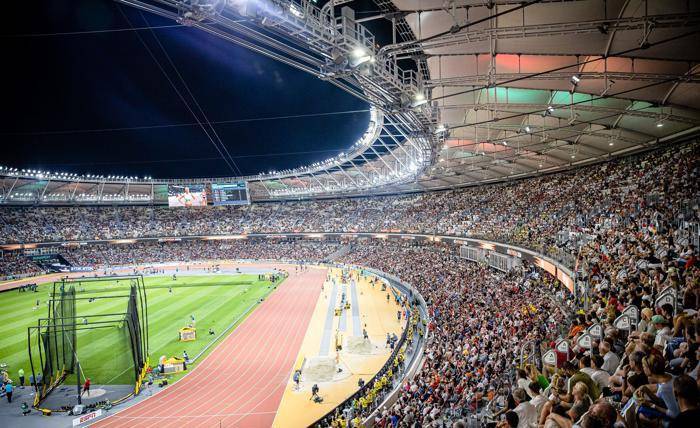World sport events are not sporting events. They are big happenings that bring people together, fling open the tourist gates, and invite business. The world sport events actually have a tangible economic impact on cities and countries. They attract tourists, and generate employment. They bring revenues to governments and businesses. Platforms like mpo2121 show how global audiences are drawn to large-scale entertainment. Which is just as fans travel worldwide to attend live matches. The rise of mpo2121 also highlights how digital spaces mirror the same excitement and financial potential found in stadiums and arenas.
Sport Tournaments Generate Tourism
Tourism is the biggest singular advantage in hosting sport events. Global events draw travelers from around the globe. They spend on several things. Such as travel, eating, shopping, and accommodations. For example, during the 2016 Rio Olympics, Brazil had thousands of tourists visiting and traveling around and pumping billions of dollars into the nation’s economy. Tourism creates a trickle-down effect and compensates the local workers and local small enterprises by increasing their earnings.
Employment through Sport
Competition sports create employment prior and during the event. World events are preceded by host nations with new stadiums development, road improvement, and infrastructural developments. The activity creates employment among workers, engineers, and service industry service providers. Temporary employment at work is created in security, hospitality, catering, and media at the event stage. Sports management and tourism employment increase even after the event.
Local Generation of Revenue
It is beneficial to local companies when cities host sports events. Restaurants, hotels, and cafes receive a large customer base. Retail stores sell jerseys, souvenirs, and caps to fans. Cab businesses as well as transportation companies also benefit since fans drive from hotels to sports venues independently. Street vendors selling food around sports locations also receive extra customers. Sports events provide avenues for large as well as small businesspeople.
Sponsorships and Media Rights
Sports events are also giant money-makers in terms of sponsorship and broadcasting. Multinationals spend tens of millions to sponsor a FIFA World Cup or Olympics event. Media corporations spend gobs of money paying for broadcast rights. The dividend is not only for sporting organizations but also to help stimulate the host country’s economy. Sponsorships also help local businessmen in terms of publicity on an international scale.
Urban Development and Infrastructure
Scheduling sports events typically means huge investment in infrastructure development. Stadia get built or redeveloped. Roads are upgraded, and transport capacity is increased. These upgrades keep getting used long after the event is over. To the benefit of surrounding communities many years into the future. The London 2012 Olympics kick-started regeneration in East London. Which came with better housing, transport, and public spaces.
Long-Term Tourism Benefits
Apart from the event, having large tournaments is also said to boost tourism in the long term. Fans of a sporting event in a city will surely come back to the city in the future as tourists. The country’s culture, amenities, and attractions also come to mind through media coverage. Sporting events can be a perfect tourist board advertising resource.
Challenges and Costs
The sports events are wonderful, but they have drawbacks. They are costly, and that is billions of dollars. Intentionally or otherwise, there are stadiums that turn into “white elephants”. And it never gets used after the event. Governments must consider cost against advantage in the long term. Corruption, extravagance, and wrong planning can make the economic benefits vanish.
Small-Scale Events Also Matter
It’s not only the Olympics that are the mega-events and garner economic gains. Local and regional events are sufficient to get the economy moving in smaller but still considerable amounts. Secondary school final exams, city marathons, and regional cricket tournaments bring tourists to towns and cities. They might not pull in a billion but still generate local business and offer community pride.
Last Thoughts
Sporting events contribute hugely to the economy of the world. They create jobs, generate tourists, encourage local business, and boost infrastructure. Issues and money spent aside, sporting events planned well can be left behind with lasting legacies. Sport events are more than a means of entertainment. They are growth drivers, and development drivers. They are also opportunity motors.
FAQs
- Is the Olympics to blame if there is an impact?
No. Local business and employment are created by small events or even one’s home town events. - Do sporting events leave a lasting legacy?
Yes. They upgrade facilities and welcome potential visitors with international exposure. - What are the disadvantages of hosting sporting events?
They can offset their economic benefit if there are massive costs, empty seats, and unsatisfactory management.

